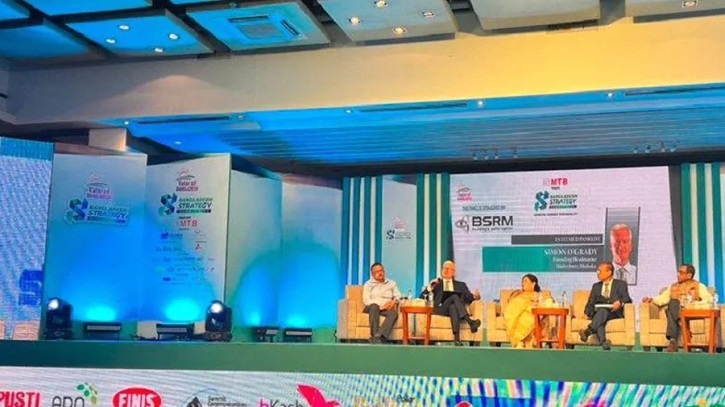Bangladesh has come far in terms of education, but there is still a lot it needs to learn
First question: What are the main challenges for education in Bangladesh?
In his Seven Habits of Highly Effective People, Covey tells us to “begin with an end in mind” (Covey, 1989). For education, we have three mutually attainable ends as our starting points: To prepare students for meaningful lives; to help them be successful, life-long learners; and to give students employable skills. In doing so, education has a duty to ensure students are safe, happy, and successful.
Whilst Bangladesh has made significant progress in recent years, three key challenges remain:
Challenge-1 concerns curriculum relevance and quality. There are high repetition and drop-out rates, with an estimated 4.3 million children out of education with others in education achieving competitive educational outcomes (source: UN, 2020). Recent moves to adopt a competency based framework (2021) are to be applauded and will meet the country’s need for skilled labour.
Challenge-2 concerns teacher quality. Children suffer a learning loss of around 40% due to poor quality education across eleven years of schooling (source: World Development Report, 2018).
Challenge-3 concerns resourcing. With education spending constrained at around 2% of GDP — much lower than comparative countries — our infrastructure is dated and over-crowded (source: World Bank, 2022). Under-resourcing affects attendance. UNICEF estimates that a third of adolescent schoolgirls skip school several days each month on account of hygiene issues (source: UNICEF, 2023) and lack of appropriate support at school.
We must now build on recent progress with a strategic vision for education, a balance between ambitious aims and attainable solutions. We start with a mission to ensure all educational contexts are safe: A national safeguarding strategy built on standards that mirror the best international practices. We build a skills-based curriculum. Covey reminds us to “put first things first” and, to this end, we invest in early years education as a platform for improving literacy and numeracy, particularly in outlying areas of the country.
We ensure all children are tracked on their educational journey and that no child goes unregistered, uneducated, or uncared for. We build a national inclusion strategy, embracing the millions of children in care. All private schools should have a statutory duty to embrace these children by offering fully-funded places to an agreed percentage of orphans — let this come from the private sector and let’s reform 2017 legislation with a stroke of the pen.
Haileybury Bhaluka will take the lead here. We raise the quality of teaching through a network of learning hubs. Our outstanding schools have a duty to share best practice, initiate international partnerships through impact based teaching methods, and subsidize professional improvement in local areas. Haileybury Bhaluka is sponsoring ten schools over the next three years through its international partnership with Evidence Based Education (source: https://evidencebased.education/)
Second question: How do we compare with the best education systems in the world?
The Organization for Economic Cooperation and Development tracks the performance of education systems through student outcomes, specifically its Program for International Student Assessments (PISA). These tests measure the ability in reading, mathematics, and science of 15-year-old students. Topping the charts in recent years have been China, Singapore, Hong Kong, Canada, Estonia, and Finland.
According to the OECD, such high performing systems share common characteristics. First, they focus on the future, not the present: They focus on skills, such as critical thinking, creativity, and collaboration. Second, they believe that all students can learn: It’s the task of schools to set high standards for all students but to personalize learning. Third, they get and keep great teachers. With a profession that is hard to enter, there is career progression and sustained professional improvement.
In “thinking to win,” we need visionary political leadership and cross-party support for ambitious aims and attainable solutions. Bangladesh has made significant progress on school retention and completion rates in recent years. Putting the spotlight on tertiary education, we must raise the statutory school leaving age from 14 years and deal with the economic implications of doing so. Easier said than done with an average of 8% of income spent on food, requiring children to leave school early and start work prematurely.
We must build an expectation that young people will enter university education. This will require an increase in capacity via incentives for inward investment in tertiary education, and a transformation towards skills-based education.
In parallel comes the importance of international measures of wellbeing. In this year’s World Bank ranking, Bangladesh stands at 118/137 (source: World Bank, 2023). The coldest countries have the warmest hearts, with Finland, Denmark, and Iceland topping the charts. Finland has topped the chart for six consecutive years and ranks as one of the OECD’s high performing education systems. High performance and wellbeing are thus mutually attainable aims, with mutually beneficial outcomes.
Simon O’Grady is the Founding Headmaster of Haileybury Bhaluka. An alumnus of the London School of Economics, he is the first school leader to be invited to speak at The Bangladesh Business Summit (Sept 2023).
Source: Dhaka Tribune.

